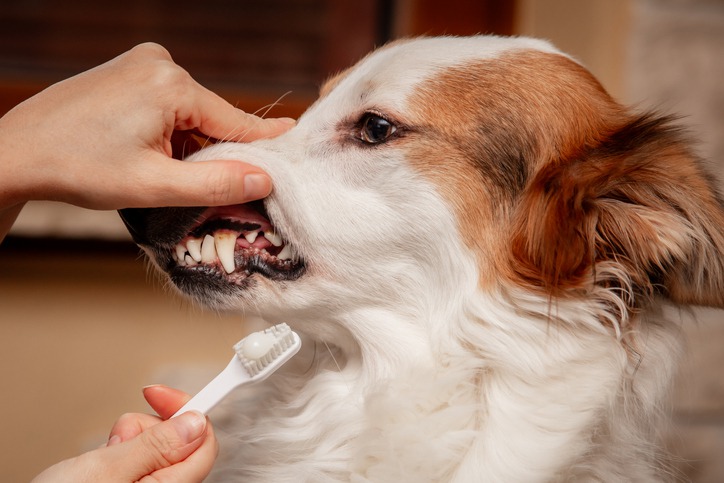An ounce of prevention is worth a pound of cure and encompasses a universal truth, particularly when it comes to the health of our furry friends. Pets, much like their human companions, need vaccinations to protect them from various diseases. This preventive measure is essential to ensuring your pet’s well-being and long-term health.
Pet Vaccinations
Vaccines work by stimulating the immune system to prepare it to fight potential infections. For pets, being vaccinated at appropriate intervals can mean the difference between life and death, especially for young or vulnerable animals.
Here’s what vaccines do:
-
Help protect pets from highly contagious and deadly diseases.
-
Reduce the overall risk of disease transmission to other animals.
-
Provide a health safeguard for those who interact with pets.
Moreover, local laws often require pets to be vaccinated against specific diseases, such as rabies, for public safety reasons.
Diseases Prevented by Vaccinations
Vaccinations defend against a multitude of diseases, some of which can be transmitted to humans. These include, but are not limited to:
-
Rabies: Fatal once symptoms appear, and a vaccine is legally required in most places.
-
Parvovirus: A life-threatening virus that causes gastrointestinal illness.
-
Distemper: A viral disease affecting the respiratory and nervous system.
Each vaccine is targeted to help prevent specific diseases, with some needing to be refreshed with booster shots over time.
Vaccines Tailored to Your Pet’s Lifestyle
Every pet is unique, and what they need in terms of vaccination depends on various lifestyle factors:
-
Outdoor versus indoor pets may require different vaccines.
-
Breed-specific vulnerabilities can influence vaccine choices.
-
Local wildlife risks may necessitate certain vaccinations.
It’s essential to discuss your pet’s specific circumstances with your veterinarian to determine the best vaccination schedule.
Young Pets and Vaccines
Puppies and kittens inherit a degree of immunity from their mother’s milk. However, this protection is temporary. To help these young pets build their own immunity, a series of vaccinations may be recommended, encompassing various core and non-core vaccines. During this phase, adhering to a vaccination schedule is particularly important to close potential immunity gaps.
For those interested in giving young pets the best start, read more about the care and vaccines needed during their formative weeks and months.
Vaccinations as Part of a Bigger Picture of Health
Vaccinations are a significant component of preventive health care for pets, but they’re just one part of the wellness equation. Regular check-ups, parasite prevention, and a balanced diet all play a role in keeping your beloved pet healthy. Moreover, new advancements, such as pet healing with stem-cell therapy, continue to emerge, offering additional avenues for maintaining pet health.
The Timing and Frequency of Vaccinations
Just as humans have scheduled vaccine timetables, pets also need their immunizations at specific times:
-
Initial puppy/kitten vaccines typically start at about six to eight weeks of age.
-
Booster shots are often given at three- to four-week intervals until about four months of age.
-
Adult pets typically require boosters every one to three years, depending on the vaccine.
It’s crucial to follow the vaccination schedule provided by your vet to maintain the effectiveness of these vaccines over your pet’s lifetime.
Addressing Vaccine Concerns and Safety
It’s normal for pet owners to have questions or concerns about vaccines. Here are some key points:
-
Side effects are typically rare and may include temporary soreness or mild fever.
-
Pets with adverse reactions or certain medical conditions might get alternative schedules.
-
Consult your veterinarian if you’re concerned about vaccine reactions in your pet.
Communication with your vet is vital to understanding the risks versus benefits of each vaccine in the context of your pet’s health.
Herd Immunity
Herd immunity isn’t just a human concept; it applies to pet populations, too. By ensuring a high percentage of the pet community is vaccinated, we can drastically reduce the prevalence of certain diseases. This protective effect helps safeguard those pets who, for valid health reasons, might not be able to receive vaccinations.
Whether it is attending a dog park or a grooming facility, the collective immunity within these environments makes it safer for all pets.
Vaccinations for Special Populations
Some pets fall into special categories where their vaccination needs might differ:
-
Senior pets, whose immune systems may weaken with age.
-
Pregnant pets may require adjustments to their vaccination schedule.
-
Working animals, such as farm dogs, might have additional vaccine requirements to protect them from rural disease risks. Facilities catering to these roles, such as a large animal vet clinic, may provide tailored advice and services.
The Financial Aspect of Vaccinations
While cost can be a concern for pet owners, vaccinations are generally cost-effective. Preventing diseases with vaccines is typically far less expensive than treating a disease once contracted. Some clinics offer wellness plans or clinics that help manage these expenses over time.
Keeping your pet’s vaccinations up-to-date is a manageable and financially wise step towards longer, healthier lives for your pets.
To End
Pets enrich our lives in countless ways, and in return, it’s our responsibility to tend to their well-being, which includes keeping up with their vaccination schedule. The protective shield vaccinations provide is one of the most powerful tools in our arsenal for keeping our beloved animals healthy and happy throughout their lives. Speak with your vet, stay informed, and prioritize your pet’s vaccinations to offer them the best chance at a long, disease-free life.



